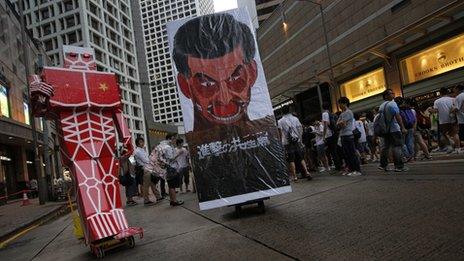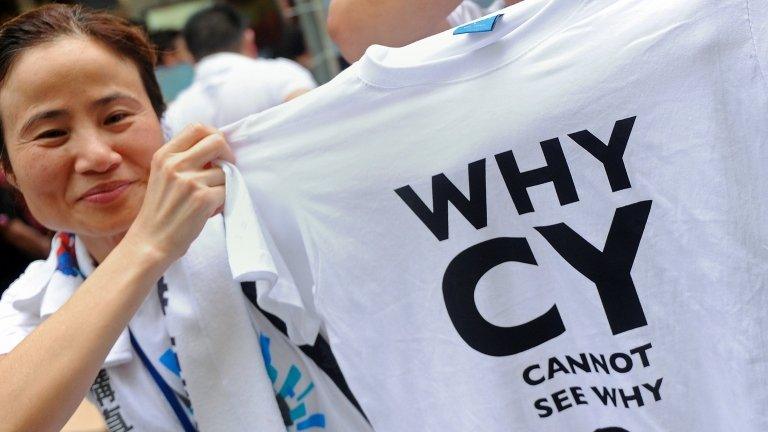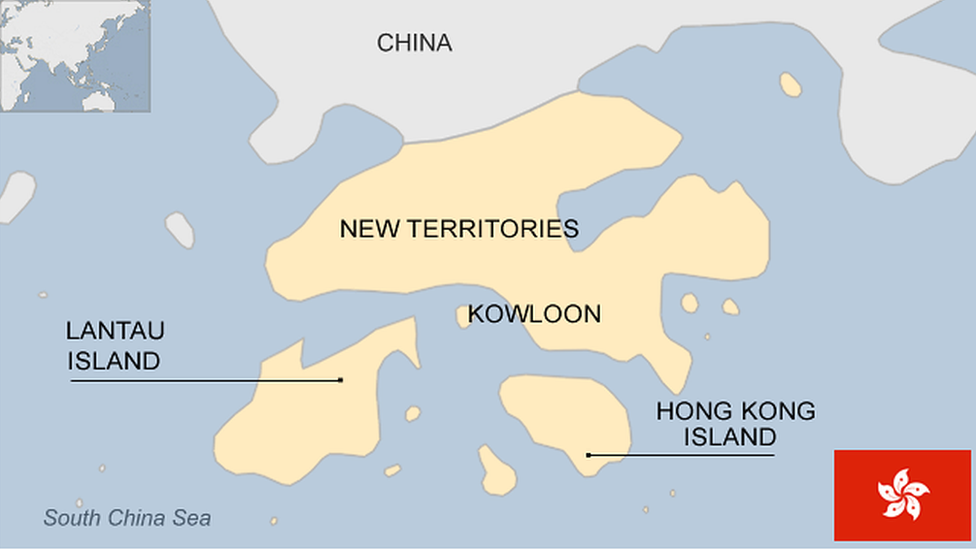China top official meets Hong Kong lawmakers
- Published
Zhang Xiaoming's visit was the first such meeting since Hong Kong's handover to China in 1997, as Juliana Liu reports
China's top representative in Hong Kong has had lunch with pro-democracy lawmakers, in what is being seen as an unprecedented meeting.
Zhang Xiaoming, head of the city's Beijing liaison office, met members of Hong Kong's Legislative Council from across the political spectrum.
This is the first such meeting since Hong Kong's handover to China in 1997.
Some pro-democracy legislators walked out of the lunch after raising concerns about the pace of democratic reform.
Speaking at the lunch, Mr Zhang said that China was sincere about introducing universal suffrage to Hong Kong.
However, it had to be implemented in accordance with Hong Kong's Basic Law and the decisions of China's National People's Congress, he said.
Hong Kong's Basic Law emphasised that Hong Kong was a highly autonomous region in China, not a country, he added.
Speaking to reporters after the lunch, Mr Zhang also criticised Occupy Central, a civil disobedience movement being planned to promote universal suffrage.
"No matter what beautiful words are used to package it, illegal is illegal," he said.
"If someone is allowed to challenge Hong Kong's law for political demands, this will create endless trouble and harm young people."
'Historic event'
Many lawmakers submitted letters about political reform or the 4 June 1989 Tiananmen Square crackdown to Mr Zhang at the lunch.
One outspoken legislator, Leung Kwok-hung, wore a T-shirt calling for the release of jailed dissident and Nobel Peace Prize winner Liu Xiaobo.
Formal meetings between top mainland officials and Hong Kong's pro-democracy lawmakers are rare, and many pro-democracy legislators have been banned from entering mainland China in the past.
"This is a very historic event because there has never been mainland officials paying an official visit to the Legislative Council," Emily Lau, chairwoman of Hong Kong's Democratic Party, told Bloomberg last week.
The meeting was called the most important political lunch since the 1997 handover, the BBC's Juliana Liu in Hong Kong reports.
The Chinese government has said the next chief executive will be chosen by universal suffrage, but many suspect Beijing will manipulate the rules in order to ensure a loyalist is elected, our correspondent adds.
On 1 July, tens of thousands of people in Hong Kong took part in a demonstration demanding the right to elect the city's chief executive.
Hong Kong's top official is currently chosen by a group of 1,200 electors.
The city is governed under the principle of "one country, two systems", under which China has agreed to give the region a high degree of autonomy and to preserve its economic and social systems for 50 years from the date of the British handover.
- Published6 July 2013

- Published1 July 2013

- Published7 January
